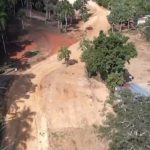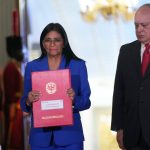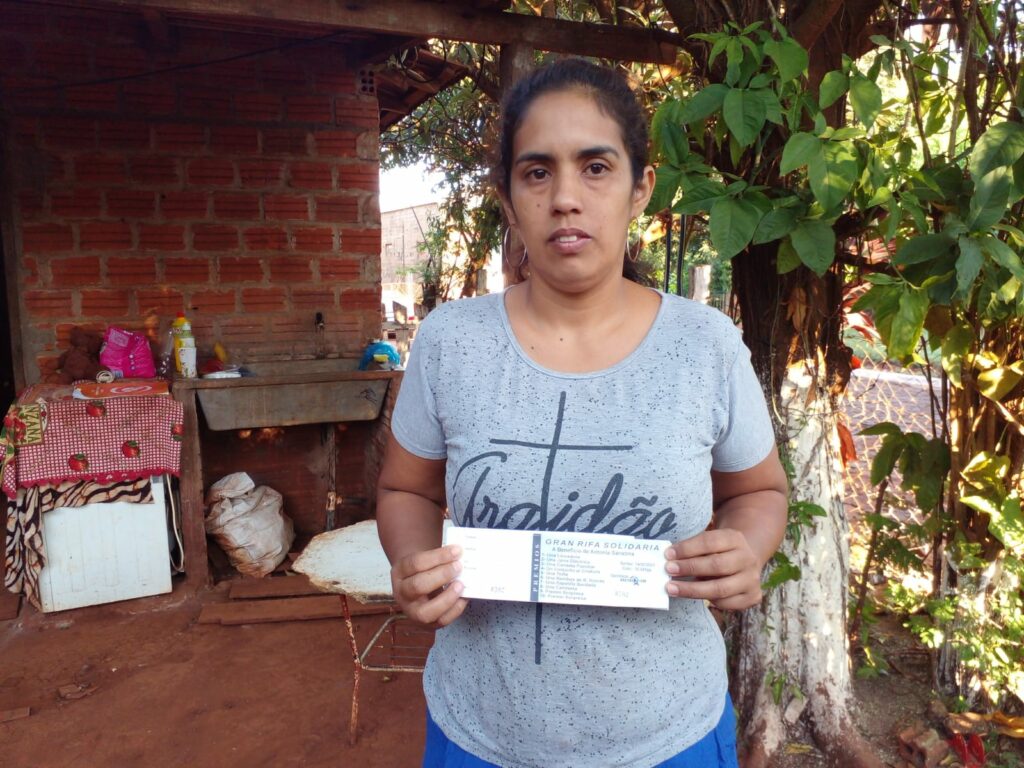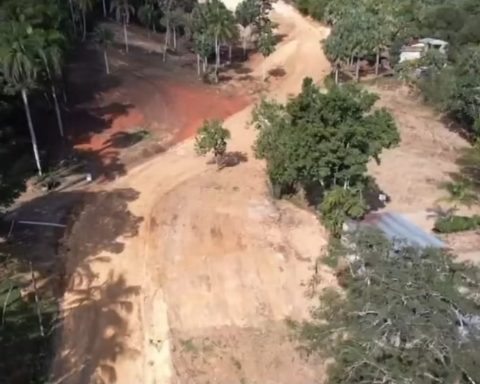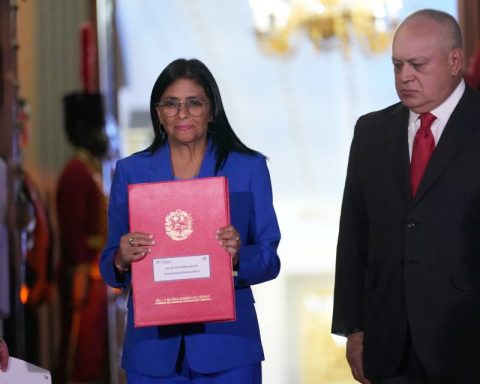She is the daughter of migration. Her mother left Spain in the Franco 1960s. Her father left the Andes for the capital. In Caracas, Nancy was born, who finally left Venezuela a decade ago, when Hugo Chávez had passed away and Nicolás Maduro was rising to power. “I’m finding out here and I think I’m going to stay,” she told her mother one day from Lima.
Today, between 1.1 and 1.4 million Venezuelans live in Peru. One of them is Nancy Arellano Suárez, director of Migration Projects at Cedar and founder of VeneActiva, an organization created by professional migrant women. She says that from Cedro they work with Intercorp to open migracentros in shopping centers with the focus on economic inclusion, for foreigners who come to Peru and for Peruvians who leave the country. “This for me is passion and profession, beware,” she warns in a video call; in her words there is precision and consistency.
He has yet to write a collection of poems, but a novel is already on the way. From fiction, she wants to create a Latin American territory, perhaps a new Macondo. Before she is Spanish, Venezuelan or Peruvian, she chooses to be Latin American.
LOOK: Camila Zapata: “I think that when the country suffers, sports too”
-He did not return to Venezuela to flee the crisis and today Peru is experiencing a deep crisis.
There is concern. My home is Peru, it is my reality of the last decade. What happened to Peru hurts us.
-It is constantly repeated that “we do not want Peru to be like Venezuela.” Is that fear valid or is it an exaggeration?
What happened in Venezuela was the loss of institutionality. If the political and social conflict in Peru cannot be managed, it can indeed trigger an institutional weakening, which will undo many of the advances that this country has made in recent decades. This institutional construction has not been perfect or sufficient, but there are bases. The loss of a clear expectation worries. It will not be like Venezuela, just as Venezuela is not Cuba. Each body responds differently to a disease. The institutional crisis, the political crisis, the social crisis, ultra-polarization, the lack of spaces for concertation are a disease of Latin American politics, as well as the weakness of the political parties… You draw up a new Constitution and it does not come with a little package of new characters or new politicians. The reality is that political actors continue to swarm and change their shirts.
LOOK: Ricardo Bedoya: Who assured that El Placer de los Ojos would last 12 programs? [ENTREVISTA]
-Beyond the crisis, was there any other reason to leave Venezuela?
The process of institutional decomposition takes its toll. What has been experienced in Venezuela in the last decade has been the epilogue of what happened before. It coincided that I had a job offer. I did not come to Peru, I stayed in Peru, I did not return to Venezuela. At that time, Peru was in a space of important growth… I came to do international trade consulting for Venezuela.
-What influenced you to decide to stay in Peru?
I think I had the opportunity to see the best of Peru. Wonderful places, very cool people, the food was very good and they explained to me how things worked. But they asked me why Peru if I have Spanish nationality.
-And why Peru?
I studied a master’s degree in Public Management and Government for Latin America. I wanted to stay in Latin America.
-Again: why?
You can’t change families. I am and I feel Latin American. I feel that Latin America has all the potential to achieve great things: we have a wonderful climate, an impressive amount of natural resources, very talented people, we are a market of more than 600 million people. We have a strategic position towards Europe, USA and Asia. And we have a very interesting cultural greatness, we are the most mixed and intercultural region; we have been influenced by almost every culture worldwide. Latin America is a summary of the world and I think that Peru also sums up that photograph of Latin America very vigorously.
LOOK: Luisa Macavilca: “A fire will not collapse me, I will continue with my flower business”
-Why did your mother stay in Venezuela?
She is older, she is 78 years old, she has her house, she is a retired woman and she likes her house with her dogs.
-But you could have come with your daughter to Peru, right?
Well, he doesn’t want to leave (smiles), he doesn’t want to leave his things to circumstance. My mother used to say: “I already migrated once.”
-Why did you specialize in public policy in Chávez’s Venezuela?
I didn’t think it was Chávez’s Venezuela (laughs). I followed Liberal Studies, it is a career that combines Economics, Philosophy, History and Politics. Being a frontier professional opens your eyes a lot. And I did a master’s degree in Public Management and Government for Latin America because politics touches everything, there is no way to escape politics. You may think that you are in the private sector and say “I don’t get involved in political issues”; yes, but politics is going to mess with you.
-Today Peru is hostile to Venezuelans?
Being a foreigner is never easy. Migration is like a magnifying glass, it magnifies the realities that are there. The experience of discrimination that a Venezuelan has is the magnification of the experience that a Peruvian has. It is difficult to find a job, it is more difficult for a foreigner; there are issues of racism, it is more difficult for a foreigner; there is machismo, it is more difficult for foreigners. If you are black, poor, a woman and a foreigner, you are going to see it very differently than if you are a woman, white and have economic resources even if you are a foreigner.
-But, at least, are we learning to live with Venezuelan migrants?
Yes! There is a space where integration is happening. There are already binational families. Reniec realized, at the end of last year, 60,000 children born to a Venezuelan father or mother.
-In a few years, what will be said about what the Venezuelan migration contributed?
Gastronomically I have no doubt that there will be something. The import of corn flour has grown more than 600%.
-The Peruvian arepa will be born…
Yes… In the character of the average Venezuelan, we are a more egalitarian country, we never had great pre-Columbian civilizations, nor the verticality of an empire, nor were we a viceroyalty; we have a society with a greater perception of equality, and that gives a closer character; This will help to generate a greater space of trust eventually, it will help to mitigate some ultra-vertical structures that exist in some segments of Peru that generate spaces of mistrust and that often make dialogue impossible. But, at the same time, the issue of the emerging is a lesson for the Venezuelan community, because it has been a process of self-construction, not assistance from the State… For the rest, Venezuelans and Peruvians dance salsa (laughs).
SELF-FICHE:
– “I am Nancy Elena Arellano Suárez, I am 38 years old. I was born in Caracas, Venezuela. I have a degree in Liberal Studies with a diploma in International Politics, a specialization in International Finance and a master’s degree in Public Management and Government for Latin America”.
– “I also have a professional master’s degree in Results-Focused Projects from the Inter-American Development Bank. My mother migrated from Spain to Venezuela and my father was a migrant from the Andes to the capital. I am the daughter of two migrants, external and internal”.
– “We are in the Integrating Companies initiative, which Cedro and Confiep work to benefit the formal entry into the labor market of eight groups: women, people with disabilities, Afro-descendants, native communities, LGTBIQ+, older adults, youth, and migrants and refugees.”









